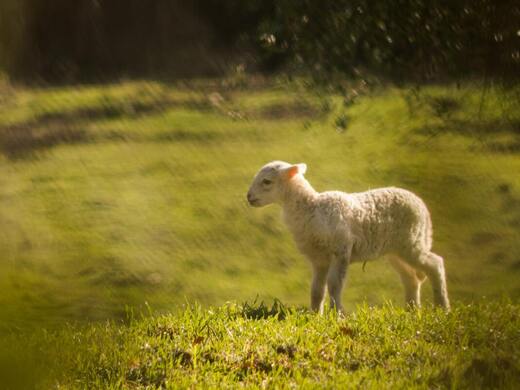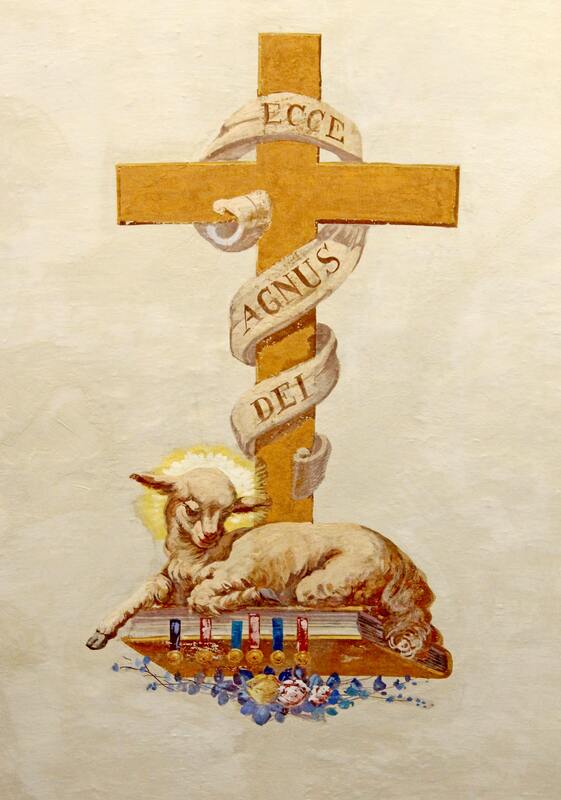|
Scripture Readings: Exodus 13:1-14 | Psalm 149 | Romans 13:8-14 | Matthew 18:15-20
I don’t know about you, but I sure miss Hymn Tortons.[1] When I first arrived here at St. Luke’s Gondola Point just over a year ago, this weekly fellowship meal following the Sunday service was one of the practices of this Parish that stood out to me the most: a simple way to share food and friendship and hospitality, and to put into practice our identity as sisters and brothers in Christ… a spiritual family. I’d say it’s much more than just a meal, and a weekly get together. It is a tangible taste of love; one which says a lot about the kind of community we are, and which also plays an important part in shaping us to be the people God has called us to be: hospitable, caring, kind. It is one of our parish practices I am longing to return to… and hopefully we will be able to find a safe way to hold it again soon. Today the Holy Scriptures speak of another special meal: the Passover supper. A sacred commemoration of Israel’s redemption; rescued from Egyptian slavery by the mighty hand of God. Our text today comes at a crucial moment in the story of the Exodus: Two weeks ago, we heard how, as an infant, Moses was saved from Pharaoh’s genocidal schemes… and last week, we were witnesses to the commissioning of Moses by the Living God to face Pharaoh, and demand he set Israel free. Our readings pass right over the dramatic encounters that followed where Pharaoh refuses to listen to Moses… and all heaven breaks loose. God responds to the defiance of Egypt’s hard-hearted king with nine devastating plagues that leave his country in ruins. The river Nile turns to blood; swarms of frogs, gnats, and flies arise; Egypt’s livestock fall ill and die; painful boils break out on it’s people; hail thunders down from the sky; and deep darkness covers the land for three long days. (Now I know 2020 is getting a bad wrap, but just imagine living through all this!) Time and again, when given the chance to release his Israelite slaves, Pharaoh refuses to give up the power he thinks is in his hands. And so God unveils His final plague on the prideful rule of Pharaoh, revealing Himself as God Almighty, with no equal or rival. As Pharaoh had once ordered the execution of every Israelite newborn boy, the LORD now warns Moses that in this final plague “Every firstborn in the land of Egypt shall die” (Exodus 11:5). The Living God was about to bring an end to Israel’s oppression. After this, Pharaoh would relent and finally set them free. And now suddenly, for the first time, Israel is being called to participate in this final, decisive moment. Up until now they had simply watched and witnessed the saving power of God in action. But now God is giving His people a job to do… not to take up arms and overthrow their now weakened oppressors. Not to take flight and make a daring escape, fleeing under the cover of darkness and taking advantage of the Egyptian’s vulnerability. No… they are instructed to eat. To have a meal. To take part in a sacred supper, one that would celebrate forever God’s dramatic and gracious salvation of His people. This meal would become a foundational part of their story, one that would continue to shape their communities for generations to come. A few specific details about this special meal stand out: They were to gather in their households, or together with their neighbours, and eat an entire lamb… roasted over a fire. They were to consume its life, and burn up whatever they could not finish before the dawn. At the centre of this sacred supper is this slain lamb. They were also to smear the lamb’s blood on their doorposts; marking their houses, and those inside, as those who obeyed the Lord. The blood was to be a visceral sign; God’s deathly plague would pass over all those it marked… sparing everyone seeking shelter through it. Finally, they were to eat this sacred meal while ready to go. Prepared to leave behind the only life they had ever known, and confident that this decisive act of God would change everything. They were not sure where they were going yet, but they had to be ready to go. To follow the LORD into their brand-new life. I think it’s worth saying that this whole thing seems pretty strange. And not just because we live in a very different time and culture, although of course, that’s also true. What I mean is that nothing the Israelites were being commanded to do that night could accomplish or ‘do’ anything in and of itself. Their participation in this sacred meal was not what broke Pharaoh’s power. The Living God was the One working in ways beyond their wildest dreams… this was God’s gift to them, not something they won for themselves. But this strange meal mattered, their eating it mattered, because it embodied their trust in their Savior… pointing them towards the LORD, opening their hearts and lives to Him. God was doing all the saving, they were called to trust and follow… and to eat. To actively receive God’s mighty gift of deliverance. The Passover is a perpetual memorial of God’s rescue of Israel, not only reminding them of what was done long ago, but reminding them that the Living God, can be trusted with tomorrow too. As one scholar puts it: “The Passover celebration retold the story of freedom after more than four hundred years of Egyptian bondage… it was a source of hope for the nation’s future redemption.”[2] In short, “if God rescued us once… can we trust Him to do it again?” For Christians, this message of hope has been fleshed out once and for all: Passover points us to God’s greatest act of salvation through Jesus Christ, His Son. To set us free, God showed His compassion and His saving might over sin, evil, death… by taking on our human life, and offering it up in our place. Jesus freely gave His life to be broken on the cross, as the way those who trust in Him might receive God’s new, eternal life. Like a lamb led to slaughter, Jesus received our share of death… to share with the world His life-giving gift: His own body to be received, to be consumed in faith. At the centre of the Christian faith stands this slain and risen Man: The Lamb of God who takes away the sin of the world. It is Christ’s blood which is our refuge, shed so we might be spared… passed-over, forgiven, redeemed, rescued, set free. His sacrifice makes possible our new life with God. And this new life is calling us to be ready to go… to let go of what lies behind, and to trust our LORD to lead us… convinced that what Christ has already done makes all the difference in the world, not only for eternity, but for how we will engage in life even now. N.T. Wright puts it this way: “dawn is almost breaking, and we cannot put off the task of living the Jesus-way, the truly human way. As Passover people, redeemed people, the Church is commanded to flee with haste from whichever Egypt still beckons with its seductive slavery.”[3] Christ came to set us free from sin, and free to embody His holy love. Jesus is the ultimate Passover Lamb. We celebrate His sacrifice when we gather together in His name, confident that He is here with us, and remains our faithful Saviour. We take part in His sacred meal, in Holy Communion, to perpetually remember what our LORD has done for us and our world… to receive, to say yes to, the gift of life He offers us: the gift of Himself. And in this meal we are called to be continually re-shaped by His gift, sharing in the New Life of God even now. So let us continue to draw near with faith and actively receive God’s mighty gift of deliverance through Jesus Christ. Amen. [1] ‘Hymn Tortons’ is the name for our fellowship meal in the Parish Hall following worship each Sunday. Before COVID-19, parishioners would volunteer to bring enough food to share, and others would help with setting up tables or cleaning up in the kitchen. It is free, although donations are accepted to support the Rev. Canon Paul Jeffries who serves at Bishop McAllister College, Uganda. [2] M. R. Wilson, “Passover,” ed. Geoffrey W. Bromiley, The International Standard Bible Encyclopedia, Revised (Wm. B. Eerdmans, 1979–1988), 676. [3] N. T. Wright, Twelve Months of Sundays: Reflections on Bible Readings, Year A (London: Society for Promoting Christian Knowledge, 2001), 103.
0 Comments
Your comment will be posted after it is approved.
Leave a Reply. |
Rev. RObRev. Rob serves as the Priest-in-Charge at St. Luke's Gondola Point, and as the School Chaplain at Rothesay Netherwood School Archives
June 2024
Categories
All
|
|
5 Quispamsis Road, Quispamsis NB, E2E 1M2
Mail to: 12 Quispamsis Road, Quispamsis NB E2E 1M2 |
Contact Us
Parish Phone: 506-847-3670 | www.stlukesgp.ca | www.facebook.com/StLukesGP/ Rev. Rob: 506-608-1772 | [email protected] |
Proudly powered by Weebly



 RSS Feed
RSS Feed
